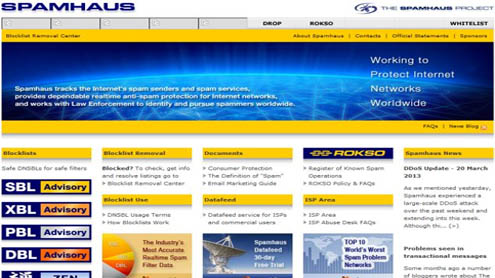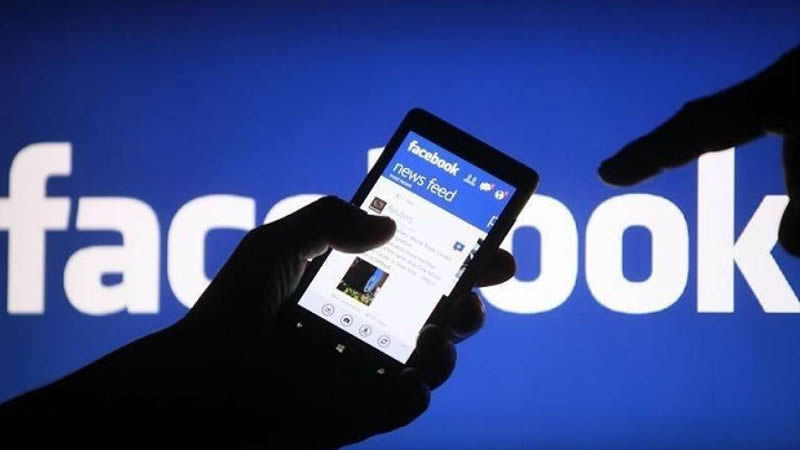
A bitter feud between two online companies has triggered the ‘biggest cyber attack in history’, slowing down internet services for millions across the world.
The row, between a group which aims to block unwanted emails known as ‘spam’ and a firm accused of sending them, has disrupted internet traffic on a global scale.Five national cyber-police forces are understood to be investigating the attack, which is so large that experts believe personal banking and email services will soon be affected.Millions of web users have so far experienced disruption to popular services such as film and TV site Netflix, along with longer than usual delays in loading websites.
The problems began when spam-fighting company Spamhaus – a not-for-profit group that aims to help block unwanted junk emails – black-listed Dutch company Cyber bunker earlier this month.Cyber-bunker is what is known as a hosting company, meaning it allows organisations to make their websites accessible on the internet by providing space on a server.The company’s website says it will host anything ‘except child porn and anything related to terrorism’.
Spamhaus, which has offices in London and Geneva, keeps a database of web servers which are known to be used for malicious purposes, such as sending spam mail for bogus products – such as fake weight-loss pills or Viagra – and earlier this month added Cyberbunker. Spamhaus claims Cyberbunker has launched a huge ‘denial of service’ (DDoS) attack in retaliation by flooding its servers with internet traffic.This is like jamming a mailbox with hundreds of letters at the same time.
Professor Alan Woodward, a cyber security expert at the University of Surrey, explained: ‘If you imagine it as a motorway, attacks try to put enough traffic on there to clog up the on and off ramps.‘With this attack, there’s so much traffic it’s clogging up the motorway itself.’Matthew Prince, chief executive of internet security firm Cloud Fare, likened the move to a ‘nuclear bomb’, adding: ‘It’s so easy to cause so much damage.’
David Emm, a senior security researcher with anti-virus firm Kasper sky Labs, said the attack was slowing down the whole internet, adding: ‘It’s like if someone wanted to flood my letterbox with junk mail it would all have to go through the delivery office and that would have an effect on the delivery of other people’s letters.
‘If the mail is coming from all over the place it will have some impact on the wider delivery.’Steve Linford, chief executive of Spamhaus, told the BBC the scale of the attack was unprecedented and powerful enough to bring down the Government’s computer system.Mr Linford said he could not disclose more details as there were fears those involved may also come under attack.
He added that several companies, such as Google, had made their resources available to help absorb the excess traffic.Sven Olaf Kamphuis, who claims to be a spokesman for Cyberbunker, said in an online message that Spamhaus was abusing its position and should not be allowed to decide ‘what goes and does not go on the internet’.He added: ‘We are aware that this is one of the largest DDoS attacks the world had publicly seen.’Experts say such attacks are growing in power and are now six times larger than recent ones against American banks.











